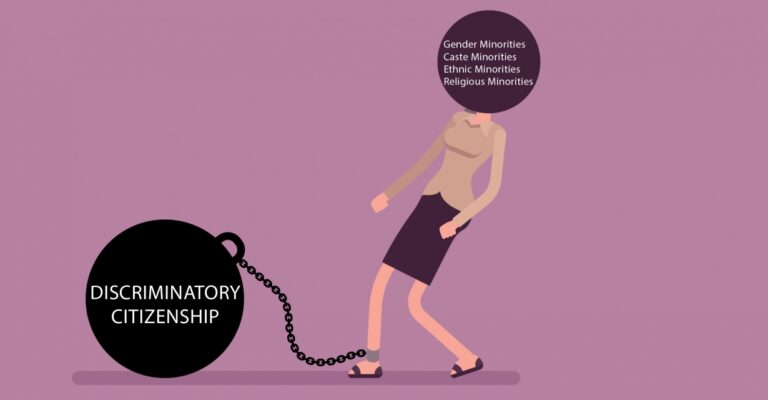
The government has amended the Nepal Citizenship Rules 2063 (2006) in a way that deals a blow to the dignity, privacy and autonomy of mothers who want their children to get a Nepali citizenship under their name.
As per amended rules published in Nepal Gazette on Sunday, a child can get citizenship in the mother’s name only after both the child and the mother submit the Chief District Officer a recommendation from the local level stating that they are unable to identify the father.
The amendment was made by the Council of Ministers on June 1 before being published in Nepal Gazette.
The requirement for single mothers and their children to declare that they are unaware of their patriarch’s whereabouts/identity, and get a recommendation letter through that declaration, in order to acquire a citizenship certificate violates women’s right to live with dignity provisioned by the constitution.
Such a prodding requirement is also likely to attract unnecessary, triggering and unwarranted personal questions by government authorities, which can be detrimental to women and children’s privacy as well as mental health.
This provision is also objectionable as the concerned local level officials could humiliate the mother and child by asking unnecessary questions.
According to the amended rules, a person born in Nepal and residing in Nepal and whose father cannot not be identified — who has completed 16 years of age and wants to get citizenship on the basis of descent — has to submit their birth certificate, their mother’s Nepali citizenship certificate, place of birth or their relationship certificate.
Similarly, the rules have made it mandatory for the recipient (of citizenship under mother’s name) and their mother to get a recommendation letter from the concerned local level which states that they have declared that the child was born in Nepal and has been living in Nepal, and that they are unaware of the identity of the father.
The mother and the child are also required to make similar declaration before the Chief District Officer or the officer appointed by him in order to be eligible to get citizenship certificate under mother’s name.
Earlier, people trying to get citizenship under mother’s name were required to submit either their mother’s birth certificate or educational certificates.
But this time, the government has added another hurdle to the children who want to get citizenship in the mother’s name by making submission of mother’s birth certificate mandatory.
Meanwhile, on one hand the law requires father’s citizenship in order to get a child’s birth certificate, while on the other hand the amended rules require mother’s birth certificate to acquire citizenship in mother’s name.
These laws and regulations are contradictory and adds to bureaucratic hassle.
Article 11 (5) of the Constitution states that “a person born to a Nepali citizen mother and having his/her domicile in Nepal but whose father is not traced, shall be conferred the Nepali citizenship by descent”.
This provision of the constitution is in conflict with Article 38 (1) of the statute which states that “every woman shall have equal right to lineage without any gender discriminations”.
38 (1) is a fundamental right enshrined in the under Rights to Women heading.
Though the constitution does not specify any criteria, the ordinance on citizenship issued by the President on May 23 provisions imprisonment of one to three years or a fine of Rs 100,000 to Rs 300,000 or both if the declaration made by the mother or the child about their patriarch’s whereabouts is found to be false.
The ordinance also has made provision for automatic revocation of citizenship (under mother’s name) acquired under false circumstances.
Though the mother having a Nepali citizenship should be enough to prove that her child is a Nepali citizen, the government has come up with additional hurdles in the name of ensuring women’s rights.
Such rules overlook rights of women who would opt to have children without getting married, divorced women, widows and women who give birth out of unjustified circumstances.
Enactment of such rules gives an overview of the Nepali patriarchal political scenario and how conservative Nepali politicians are not ready to give away their power to control women’s autonomy.





